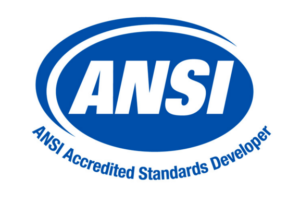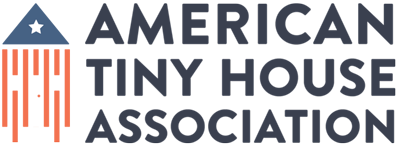To gain acceptance by zoning & planning boards, tiny houses must be recognized as safely constructed. While there are standards for RVs, they are designed for recreational living, not full time residences.
The American Tiny House Association drafted guidelines for tiny houses, but some feel it would be beneficial to formalize them as true standards.
NOAH, the National Organization of Alternative Housing, developed a certification program to inspect tiny houses and ensure there are built to their specifications, which incorporate NFPA 1192, NFPA 70 NEC, ANSI A119.5, and our guidelines.
However, one comprehensive set of tiny house standards that are fully recognized by ANSI may be more readily accepted. To develop these, we would need to follow the ANSI Essential Requirements and become ANSI Accredited Standards Developers. As of 02/29/2016, costs are as follows:
- One time application fee: $7,500
- Annual membership fee: $4,090 for companies with less than $1 million annual revenue
- Annual standards fee: $2,365 per ANSI standard submitted
- Audit fee: Audits are carried out every five years and the fee is normally included in the standards fee. However, if we submit a standard prior to having been an ANSI member for five years, there may be a separate audit fee for our first audit.
In addition to fees paid to ANSI, our association would be required to carry liability insurance.
The process from application to be a standards developer to acceptance is generally three to four months.
Alternatively, we could ask another ANSI accredited organization to submit/sponsor our tiny house standards for us.
Join the Facebook group, Tiny House ANSI Standards to participate in a discussion of possible standards.


I have emailed my recommendations to Elaine on this, I think it is a great idea and very necessary moving forward. I would like to state that based on my research of new technology arriving soon, the NFPA and NEC codes may not be flexible fast enough in allowing UL approved technology into the homes. So our own certification codes should have a option to amend any part of the code as soon as new technology is approved by an engineering association or testing authority such as a UL approved or listed product.
I would have to completely agree! Whilst certain things can and should be allowed without layers of rules and regulations, making tiny houses legitimately safe and to a code of standards is very important.
I would hope however that as this moves to a logical direction, it does not harm the amazing creative and entrepreneurial spirit that has brought this lifestyle to the point that it is. I designed and built my 200 square foot tiny (on wheels) by the code book for no other reason than I wanted it to be functional and safe. I hope that folks like myself could still do this under this umbrella and not have to use a NOAH licensed contractor simply to get a house to pass code.
The other issue that will have an impact is the pricing and shop regulations structure. This will essentially “weed” out the small boutique builders as they will not be able to afford the fees or meet the shop standards. Not a bad thing per se, but it will and could consolidate the builders out there already and in my humble opinion, the big “normal” sized home builders could easily take over and by doing so could damage the reason folks headed to tiny houses in the first place. I would be most unfortunate to see tiny houses built like tiny mobile homes (no offense) in order to keep the price point down. Additionally it would be equally unfortunate to see custom built tiny houses as we see them today cost so much it defeats the purpose.
So progress yes! but I hope everyone is mindful of the impact these things can have.
I am very new to the tiny home movement, but I also agree there needs to be a National Organization (yay-ATHA!) and a set of standards recognized by an accrediting body. I agree with Bbarthell that one of the driving factors for tiny homes is self built construction that thereby yield huge savings. Maybe, there could be a way to have specialized tiny home inspectors, that for a fee, can inspect for standards. Those home could be “certified”, providing legitimacy when requesting ADU or other mobile housing unit approval. Home inspectors are already regulated in some states, so maybe an additional class for them to inspect during and after construction could help with safety and structural concerns of municipalities.
NOAH has a tier for small quantity builders. The fee is less for small quantity builders, and i think you will find, much cheaper than hiring a licensed electrician- plumber-HVAC to meet codes. Noah incorporates existing codes. Dave